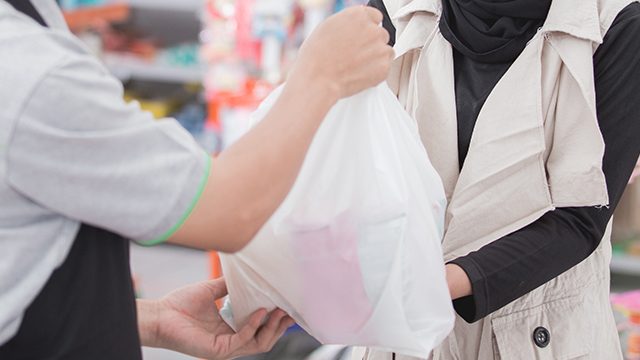SUMMARY
This is AI generated summarization, which may have errors. For context, always refer to the full article.

TOKYO, Japan – Japanese retailers including supermarkets and convenience stores will be required to charge for plastic bags from next summer ahead of the Tokyo Olympics, a government panel agreed Friday, November 1.
The move brings Japan in line with many other countries that have already adopted the environmentally friendly measure, but it will only come into effect in July 2020.
There will be no set price for a bag, with each retailer able to decide how much to charge.
The government will try to “ingrain the habit among consumers of bringing bags” and help them understand the move as “a step towards transforming their lifestyle,” according to documents on the plan.
It comes after the G20 major economies agreed in June a deal to reduce marine plastic waste at a meeting in the host nation Japan.
Campaigners have criticized the East Asian country for moving too slowly on reducing plastic consumption – particularly as it produces more plastic packaging waste per capita than any nation apart from the United States, according to the UN.
Japan touts an enviable waste-management system, and the government says that 86% of its plastic waste is recycled.
But much of that “recycling” involves simply incinerating plastic, often to produce energy – a process that generates carbon dioxide and contributes to climate change.
Japan exports around 10% of its plastic waste for recycling overseas. But research by environmentalists shows the waste can end up in the ocean or emit harmful pollutants when burned improperly.
In 2018, Japan’s government unveiled a proposal to tackle plastic waste, with the goal of reducing the 9.4 million tonnes produced by the country each year by a quarter by 2030. – Rappler.com
Add a comment
How does this make you feel?
![[In This Economy] A counter-rejoinder in the economic charter change debate](https://www.rappler.com/tachyon/2024/04/TL-counter-rejoinder-apr-20-2024.jpg?resize=257%2C257&crop=267px%2C0px%2C720px%2C720px)
![[Vantage Point] Joey Salceda says 8% GDP growth attainable](https://www.rappler.com/tachyon/2024/04/tl-salceda-gdp-growth-04192024.jpg?resize=257%2C257&crop_strategy=attention)
![[ANALYSIS] A new advocacy in race to financial literacy](https://www.rappler.com/tachyon/2024/04/advocacy-race-financial-literacy-April-19-2024.jpg?resize=257%2C257&crop_strategy=attention)


There are no comments yet. Add your comment to start the conversation.